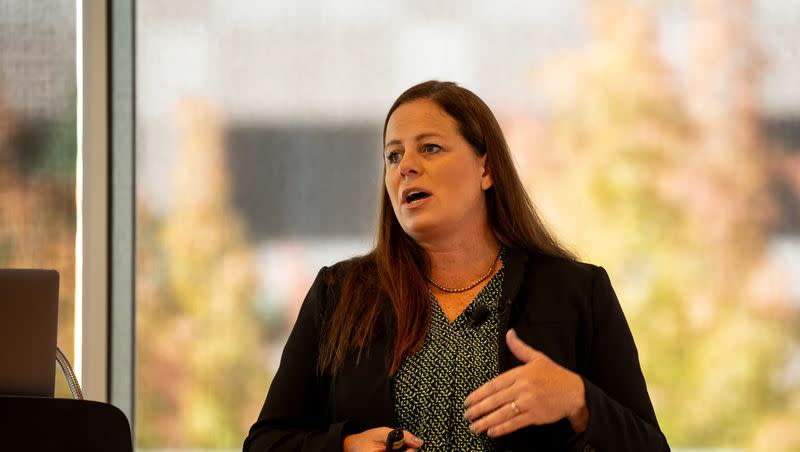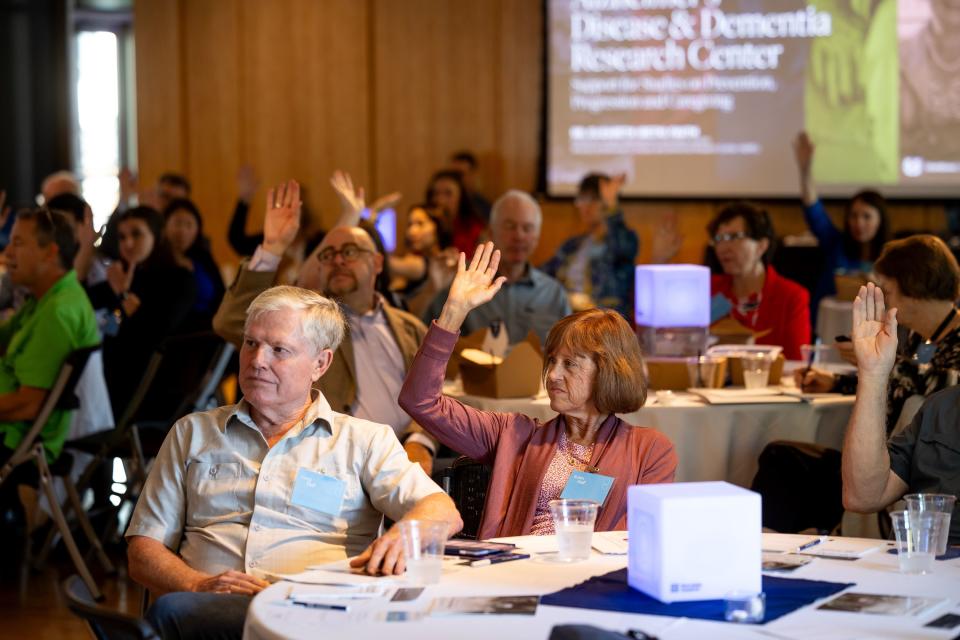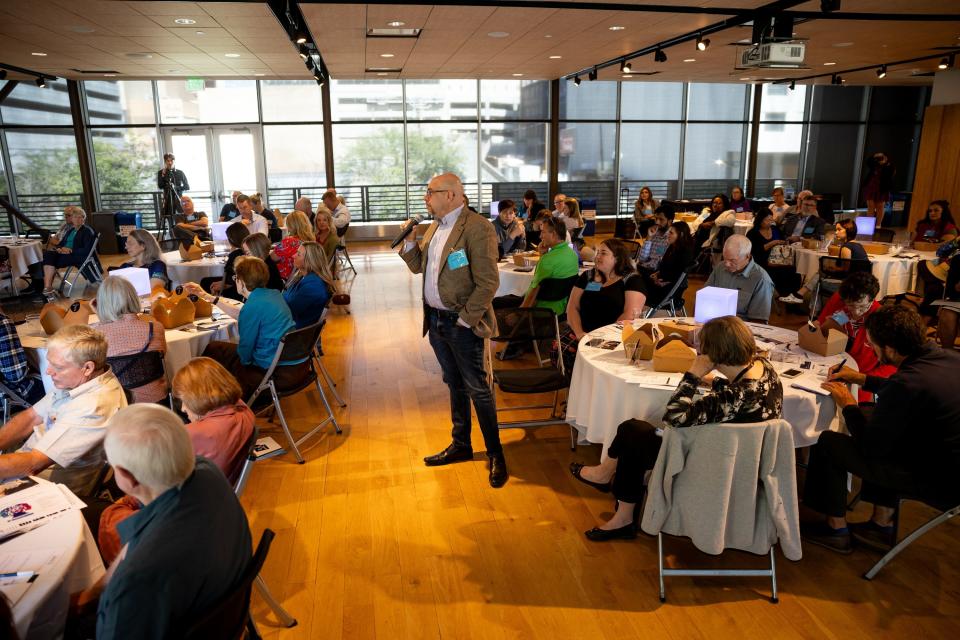What has Utah’s new Alzheimer’s research center learned about the disease?

Alzheimer’s disease is Utah’s No. 4 killer and the numbers just keep growing — from 34,000 adults 65 or older who had the disease in 2020 to 42,000 in 2025, a nearly 23.5% increase.
The issue is of prime concern because debilitating neurocognitive decline impacts individuals, families, communities, the economy, the health care system and nearly all aspects of life for those touched in some way. That’s why the Utah Legislature approved $850,000 in continuing funds to establish an Alzheimer’s Disease and Dementia Research Center at Utah State University in 2022.
The center’s focus is to accelerate studies on preventing, managing and treating Alzheimer’s and other dementias and to bolster the training needed to prepare students to be researchers, health care providers and dementia-competent workers. And while it doesn’t provide direct services to those with Alzheimer’s and their loved ones, the center’s proving to be good at connecting people to experts who can help them.
During a gathering of legislators, academics and caregivers Thursday at Salt Lake City’s Gallivan Hall, the center’s executive director, Beth Fauth, a professor of human development, talked about the first-year accomplishments and what’s ahead.
The center’s first year
That inaugural year was a mix of planning, overcoming paperwork and climbing over the hurdles involved in launching something new, as well as purchasing some specialized equipment and launching small pilot studies to push Alzheimer’s research forward.
In a fact sheet, the center touted distributing $375,000 to support nine pilot studies involving 15 researchers from nine different USU departments. Ten of the researchers made presentations to scientific societies and other organizations related to aging or dementia. Seven articles were published in scientific journals. Two pieces of “high-end laboratory equipment” were bought. And the center received a significant federal research grant on caregiver stress and health from the National Institutes of Health. Additionally, money went to hiring research assistants and establishing a faculty fellowship.
The future
Now, as year two begins, the center is moving beyond studies by USU-only researchers to forging multidisciplinary collaborations with the Beehive State’s other universities and academic experts. Eventually that will expand into partnerships with others, as well.
“Collaboration is key for innovation,” Fauth said, noting such partnerships lead to big jumps in progress. Immediate plans include launching more studies and finding new ways to expand research, to support and empower caregivers and to generally help Utahns living with dementia and their loved ones.
The university also wants Utahns to know that the center often seeks people willing to be part of the research — including folks who are healthy, those who have been diagnosed with dementia and caregivers.
Why dementia has grown so quickly in Utah isn’t completely clear, though Fauth said the fact is that many people have healthy lifestyles that extend to long life. And dementia risk increases with age. Another factor is the state’s beauty and prosperity, which attract others to move to Utah in retirement.

Caregiving challenges
Fauth said that Utahns are generous people and surveys indicate they want to provide care for family members with Alzheimer’s. But symptoms like aggression can make that very stressful. Part of the research right now, in fact, centers on some online training and support for caregivers to help them understand what’s happening and how to better manage their own reactions to caregiving challenges. Acceptance and commitment therapy has been used in different arenas to help those in stress, but this targets caregivers.
Related
Research suggests that when a therapist helps with mindfulness training and strategies, depression and caregiver burden shrink, while quality of life expands, Fauth said.
From a caregiving vantage point, Alzheimer’s disease is quite unique in that the journey can last five to 20 years, though 20 is unusual. A caregiver may be largely on his or her own, Fauth said, noting that 70% of caregivers have no paid help and 40% do “high-intensity caregiving,” like bathing, feeding, dressing and lifting people who have dementia.
Utahns are fortunate to be in a state with a formal plan to manage the challenges of dementia, Fauth noted. The state’s goals include helping people live well with dementia, supporting caregivers, expanding research and more.
The center is part of that plan, but it’s carefully constructed to collaborate with others doing Alzheimer’s and dementia-related work, rather than replicating what already exists. The research focus so far has been targeted to small studies that will provide information to show that bigger, even national studies are warranted.
“When a pilot works, the researcher can apply for a bigger federal study,” said Fauth, noting that Alzheimer’s has become a federal research priority, right behind cancer.
Alzheimer’s research
Among the research highlighted by video presentations at the event:
JoAnn Tschanz, a psychologist long involved with the Cache County Study of Memory and Aging, which “put USU on the map for dementia research,” has been studying the tremendous variation in how rapidly people with Alzheimer’s decline. While the Cache County study involved primarily white participants, USU and Brigham Young University are expanding new research to include Pacific Islander and Hawaiian natives,
Naveen Nagaraj, a professor of communication disorders and deaf education, is studying how untreated hearing loss changes the structure and function of the brain, including shrinking its volume.
Doctoral student Jacob Gossner, who is in the human development and family studies program, talked about a randomized, controlled study to measure how much a self-guided online intervention for caregivers helps them when over six sessions they learn more about dementia and how to provide care differently.
The center also has studies seeking participants, including a 90-minute paid focus group for care partners to someone who is 65 or older, has type 2 diabetes and has been diagnosed with mild cognitive impairment or early dementia. Another study is looking at caregivers’ daily sleep, activity and caregiving support to someone with dementia and their own cognitive health. The list also includes a need for volunteers 65 or older who speak English, have not been diagnosed with clinical dementia and want to be part of a study on aging and basic number abilities.
Fauth said the center’s approach is deliberately broad, with lots of ideas about how to push research forward and help those impacted by Alzheimer’s.
Asked about the future, she said, “We play well in the sandbox” with other organizations invested in Alzheimer’s research and those the disease affects. “I predict continued collaboration.”
Long-term? “I hope we cure the whole thing,” she said, giving the sense that she wasn’t joking.


